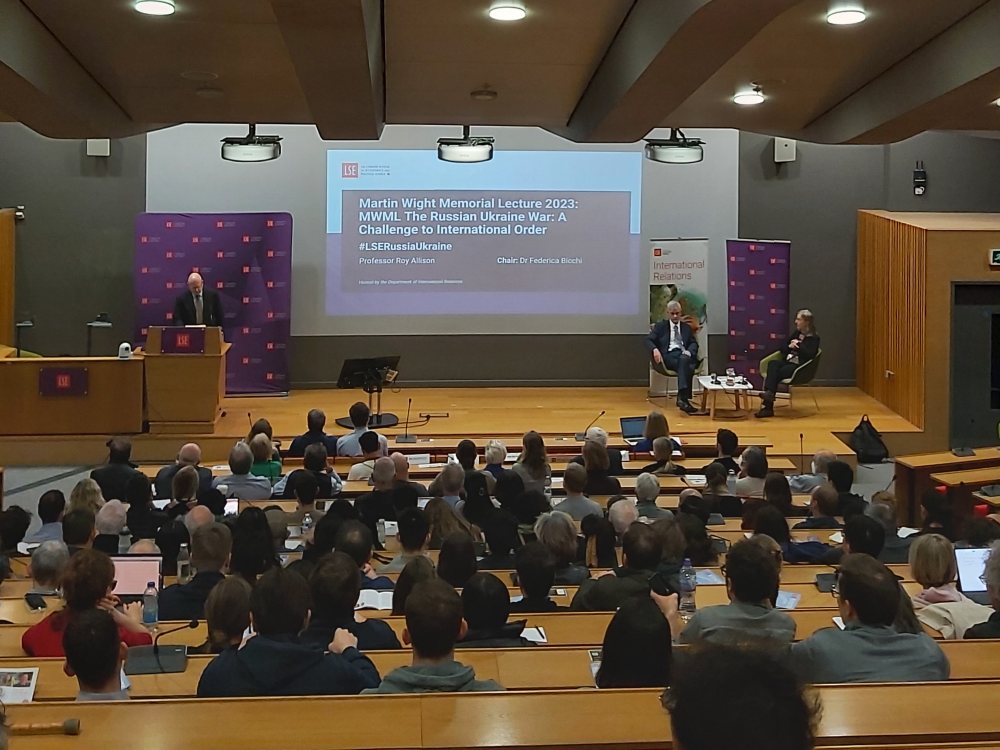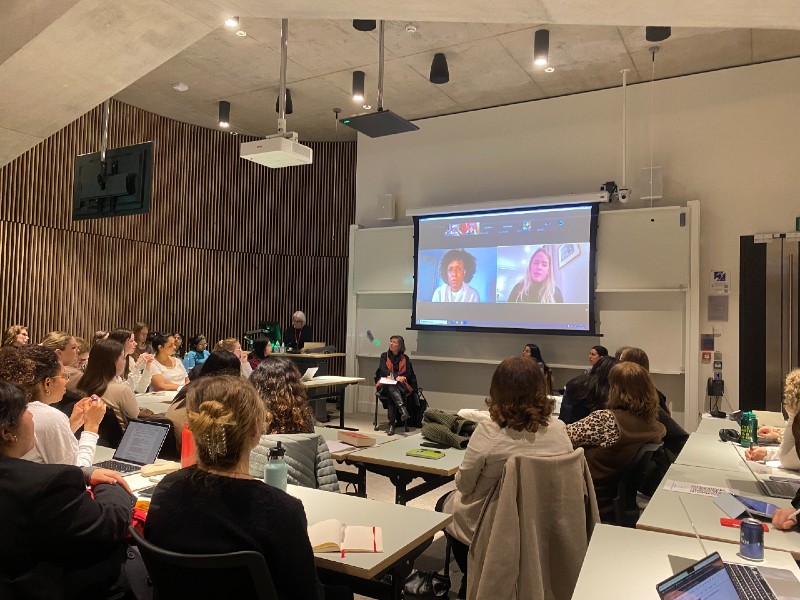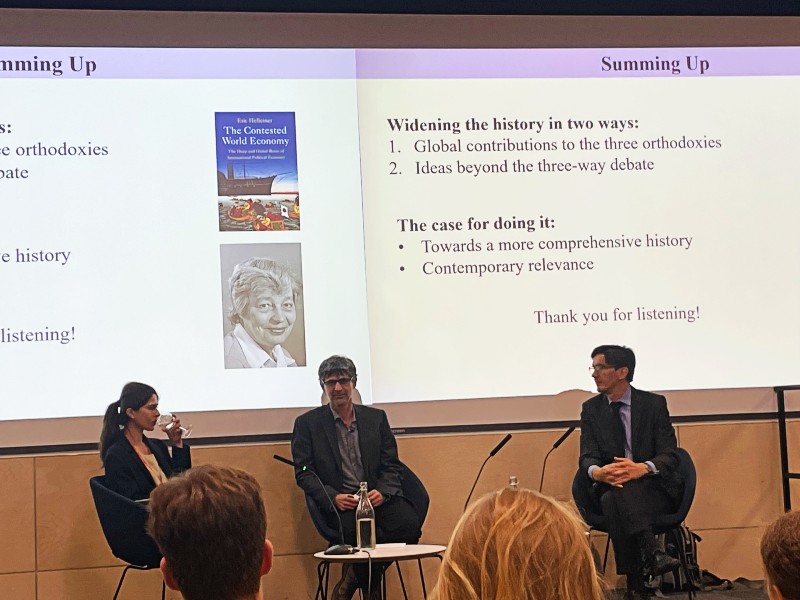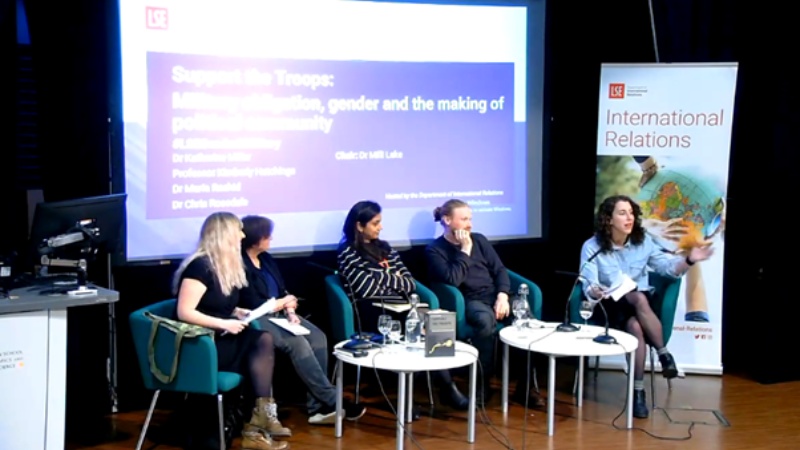On Wednesday, 13 March 2024, LSE DINAM Research Fellow Mariia Zolkina conducted a panel discussion to review the fresh challenges and changes in the political landscapes of Russia and Ukraine, two years into the invasion. The panelists consisted of Olga Tokariuk, a Chatham House OSUN Academy Fellow, and Maryna Vorotnyuk, an Associate Fellow at the Royal United Services Institute for Defence and Security Studies, and it was chaired by Luke Cooper, an Associate Professorial Research Fellow with the Conflict and Civicness Research Group at LSE.
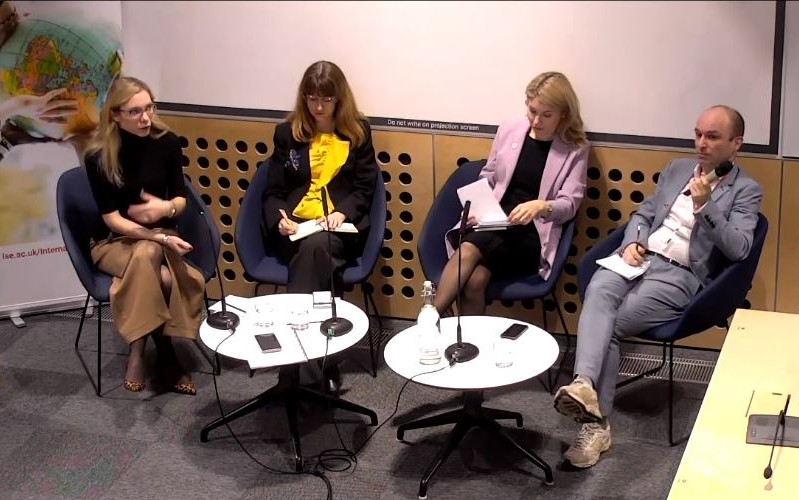
L to R: Mariia Zolkina, Olga Tokariuk, Maryna Vorotnyuk and Luke Cooper (Chair)
MSc IR student Sol Halle offers her personal reflections of the event below:
The atmosphere in the room was sobering as panelists and audience members grappled with the question of “what comes next?” for Ukraine. LSE’s Dr Luke Cooper, who moderated the event, framed his initial inquiries around current battlefield conditions for Ukraine and Russia, probing about land, sea, and information capabilities. Throughout the discussion, the panelists’ support for the Ukrainian cause was palpable, working as a common thread that connected them as each speaker addressed a dimension of the war.
Mariia Zolkina began with an assessment of the situation on the ground and plainly stated that “Ukraine is not getting all the support it needs.” She posited that the nation’s future depends on whether Kyiv can generate supply for long-range missiles from the West while tackling domestic bureaucratic problems. For Zolkina, the prospect of a peace settlement in the near future is ludicrous as she held that “attempts to establish a ceasefire is a distraction tactic by Russia.”
For Zolkina, the prospect of a peace settlement in the near future is ludicrous as she held that “attempts to establish a ceasefire is a distraction tactic by Russia.”
Dr Maryna Vorotnyuk, on the other hand, highlighted the Black Sea as a site of Ukrainian resistance. Emphasising Ukrainian asymmetric warfare tactics, she spoke of a weakened Russian Black Sea fleet. As she recognised that celebrating successes is vital for the war effort, she reminded the audience that Western support for Ukraine is needed more than ever.
Moving away from pure materiality, Olga Tokariuk asserted that Russia’s use of disinformation and cyberwarfare exemplified Russia’s objective to undermine the international order. “This is not just our war,” she stated while warning that fear of Russian escalation is paralysing the West.
Olga Tokariuk asserted that Russia’s use of disinformation and cyberwarfare exemplified Russia’s objective to undermine the international order. “This is not just our war,” she stated while warning that fear of Russian escalation is paralysing the West.
None of the speakers seemed optimistic about the potential for a diplomatic solution to the conflict. War fatigue, domestic elections, and talks of a peace settlement loomed during the questioning period, ultimately swelling in an uncomfortable exchange between the panelists and an audience member. As the interaction unfolded I thought of the danger of moving away from diplomacy as an avenue for peace. I was left to wonder, if all diplomatic avenues have been explored, what then?
Event report by Sol Halle, MSc International Relations
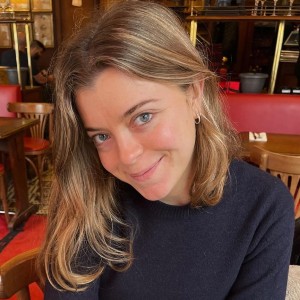
This article represents the views of the author, and not the position of the Department of International Relations, nor of the London School of Economics.


